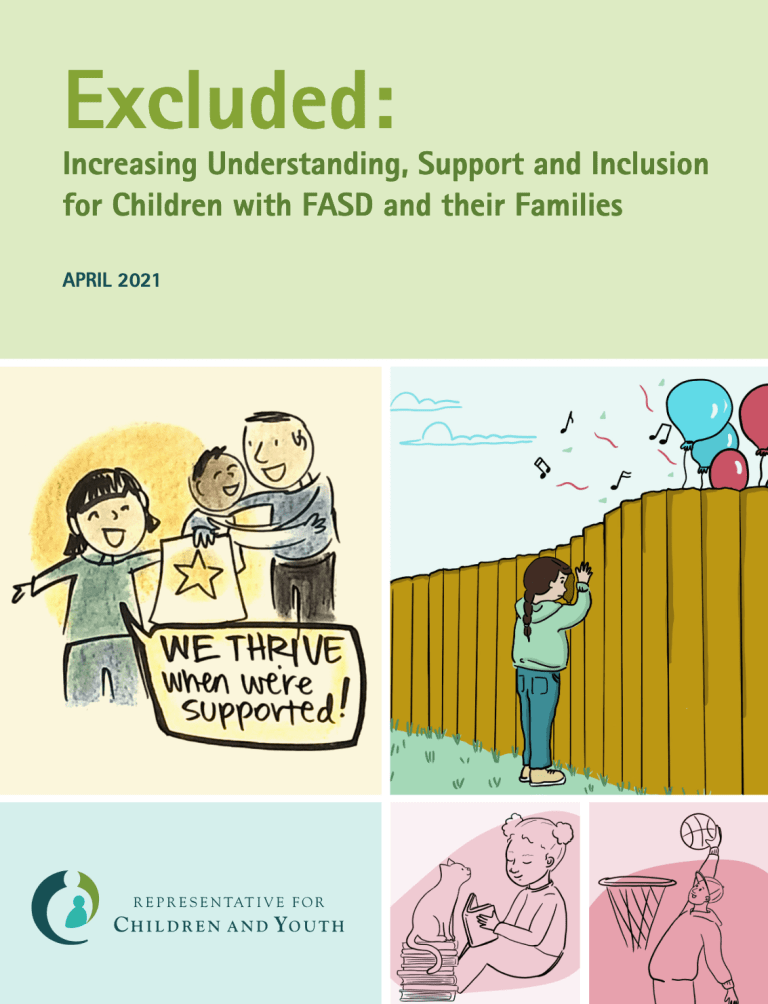Search the Baseline Project
To search the recommendations database, please visit the database main page.
To search the recommendations database, please visit the database main page.

On April 15, 2021, B.C’s Representative for Children and Youth published “Excluded: Increasing Understanding, Support and Inclusion for Children with FASD and their Families.” The report examines the experiences of children with fetal alcohol spectrum disorder (FASD), families and those who support them and reveals significant inequities in services available to children with FASD and a general lack of understanding about this ‘invisible disorder.’ It recommends the provincial government take immediate and long-term action to improve supports and services to children with FASD and their families.